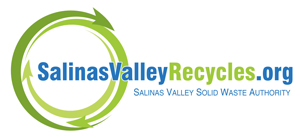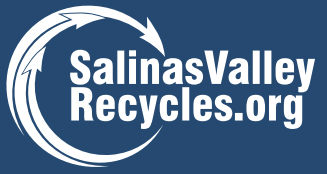Edible Food Recovery Requirements for Food Generating Businesses

Edible Food Generator Requirements
Tier 1
Note: Required to comply by 2022
SB 1383 requires all Tier 1 generators to participate in food recovery by January 1, 2022. Tier 1 generators include supermarkets, grocery stores, food service providers, food distributors, and wholesale food vendors. The edible food waste generated from Tier 1 sites will include fresh produce, meat, dairy, eggs, packaged foods, and a small amount of prepared foods.
Tier 1 Edible Food Generators: January 1, 2022 compliance deadline
- Supermarket – A full-line, self-service retail store with gross annual sales of two million dollars ($2,000,000), or more, and which sells a line of dry grocery, canned goods, or nonfood items and some perishable items. Grocery store with a facility size greater than or equal to 10,000 sq. ft. A store primarily engaged in the retail sale of canned food; dry goods; fresh fruits and vegetables; fresh meats, fish, and poultry; and any area that is not separately owned within the store where the food is prepared and served, including a bakery, deli, and meat and seafood departments.
- Food service provider – An entity primarily engaged in providing food services to institutional, governmental, commercial, or industrial locations of others based on contractual arrangements with these types of organizations
- Food distributor – A company that distributes food to entities including, but not limited to, grocery stores and supermarkets.
- Wholesale food vendor – A business or establishment engaged in the merchant wholesale distribution of food, where food (including fruits and vegetables) is received, shipped, stored, prepared for distribution to a retailer, warehouse, distributor, or other destination.
Tier 2
Note: Required to comply by 2024
SB 1383 requires Tier 2 edible food generators to participate in food recovery services by January 1, 2024. Tier 2 edible food generators include large hospitals, hotels, venues, significant events, large restaurants, large state agency facilities, and schools with an on-site food facility. The edible food generated from Tier 2 sites will be most prepared, packaged, and in small quantities of whole foods.
Tier 2 Edible Food Generators: January 1, 2024 compliance deadline
- Restaurant with 250+ seats, or facility size greater than or equal to 5,000 sq. ft.
- Hotel with an on-site food facility and 200+ rooms
- Health facility with an on-site food facility and 100+ beds
- Large Venue – A permanent venue facility that annually seats or serves an average of 2,000+ people
- E.g. Stadium, amphitheater, arena, hall, amusement park, conference or civic center, zoo, aquarium, airport, racetrack, performing arts center, fairground, museum, theater, or other public attraction or facility. (Public, non-profit or private).
- Large event – An event that averages 2,000+ people per day of operation.
- E.g. Sporting event, flea market, private park, golf course, street system or open space being using for an event.
- State agency with a cafeteria 250+ seats, or facility size greater than or equal to 5,000 sq. ft.
- Local Education Agency with an on-site food facility
Commercial edible food generators shall arrange to recover the maximum amount of edible food that would otherwise be disposed. A commercial edible food generator shall comply with the requirements of this section through a contract or written agreement with any or all of the following:
- Food recovery organizations or services that will collect their edible food for food recovery.
- Food recovery organizations that will accept the edible food that the commercial edible food generator self-hauls to the food recovery organization for food recovery.
A large venue or large event operator that does not provide food services, but allows for food to be provided, shall require food facilities operating at the large venue or large event to comply with the requirements of this section.
A commercial edible food generator shall comply with the requirements of this section unless the commercial edible food generator demonstrates the existence of extraordinary circumstances beyond its control that make such compliance impracticable. If an enforcement action is commenced against a commercial edible food generator for noncompliance, the burden of proof shall be upon the commercial edible food generator to demonstrate extraordinary circumstances. For the purposes of this section extraordinary circumstances are:
- A failure by the jurisdiction to increase edible food recovery capacity as required in Section 18991.1.
- Acts of God such as earthquakes, wildfires, flooding, and other emergencies or natural disasters.
- An edible food generator shall not intentionally spoil edible food that is capable of being recovered by a food recovery organization or service.
This toolkit was created for use and distribution by Environmental Health Departments across California to educate food facilities about safe surplus food donation, including information on liability protections, state mandates, and safe surplus food donation practices. Download the toolkit here!
Recordkeeping Requirements
A commercial edible food generator subject to the requirements of Article 10. of SB 1383, shall keep a record that includes the following:
- A list of each food recovery service or organization that collects or receives its edible food pursuant to a contract or written agreement established under Section 21 18991.3(b).
- A copy of contracts or written agreements between the commercial edible food generator and a food recovery service or organization.
- A record of the following for each food recovery organization or service that the commercial edible food generator has a contract or written agreement with pursuant to Section 18991.3(b)
- The name, address and contact information of the service or organization.
- The types of food that will be collected by or self-hauled to the service or organization.
- The established frequency that food will be collected or self-hauled.
- The quantity of food collected or self-hauled to a service or organization for food recovery. The quantity shall be measured in pounds recovered per month.
“Food recovery organization” means an entity that engages in the collection or receipt of edible food from commercial edible food generators and distributes that edible food to the public for food recovery either directly or through other entities including, but not limited to:
A food bank as defined in Section 113783 of the Health and Safety Code;
A nonprofit charitable organization as defined in Section 113841 of the Health and Safety code; and,
A nonprofit charitable temporary food facility as defined in Section 113842 of the Health and Safety Code.
A food recovery organization shall maintain a record of:
- The name, address and contact information for each commercial edible food generator that the organization receives edible food from.
- The quantity in pounds of edible food received from each commercial edible food generator per month.
- The name, address and contact information for each food recovery service that the organization receives edible food from for food recovery.
“Food recovery service” means a person or entity that collects and transports edible food from a commercial edible food generator to a food recovery organization or other entities for food recovery
A food recovery service shall maintain a record of:
- The name, address and contact information for each commercial edible food generator that the service collects edible food from.
- The quantity in pounds of edible food collected from each commercial edible food generator per month.
- The quantity in pounds of edible food transported to each food recovery organization per month.
- The name, address and contact information for each food recovery organization that the service transports edible food to for food recovery
Resources








Only Compostable BPI-approved bags are allowed in the food waste bin.
BPI certifies the bags meet: ASTM D6400 or ASTM D6868 standards to effectively compost in a commercial composting system.
Ask your supplier for BPI Certified Compostable Bags. They must have this logo on the box or product.
If your supplier does not carry BPI compostable bags, you can find a vendor through the BPI site here.




